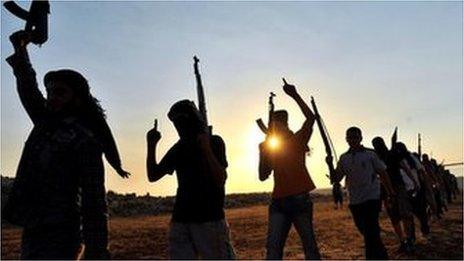Australia lifts parliament ban on face coverings
- Published
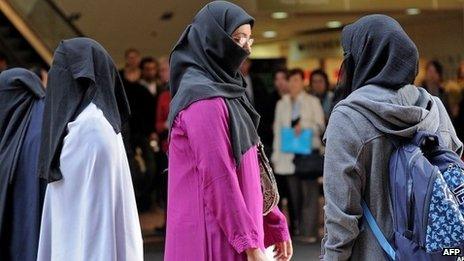
Critics of the rule said women wearing niqabs or burkas were not an additional security threat
The Australian government has reversed a decision which would have restricted access to parliament in Canberra for women wearing full-face Islamic veils.
Earlier this month, parliament said anyone visiting the building with their face covered would have to sit in a separate area of the public gallery.
The move was widely seen as being aimed at Muslim women in burkas or niqabs, prompting discrimination accusations.
Officials said visitors would now have to show their face briefly to security.
"Once this process has taken place, visitors are free to move about the public spaces of the building, including all chamber galleries, with facial coverings in place," the Department of Parliamentary Services said in a statement.
The plans would have affected Muslim women wearing niqabs, full-length garments where only the eyes are visible, and burkas, where no part of the face can be seen.
Stephen Parry, president of the Senate, said the initial ruling had been made because of rumours that a group of people were planning to attend prime minister's questions on 2 October wearing veils and stage a protest in the public gallery.
He said the measure was intended to be temporary and, as it had come on the last day of the parliamentary session, had never been enforced.
'Segregation'
Prime Minister Tony Abbott - who has previously described burkas as a "confronting" item of clothing which he wished people would not wear - had asked Speaker Bronwyn Bishop to "rethink that decision".
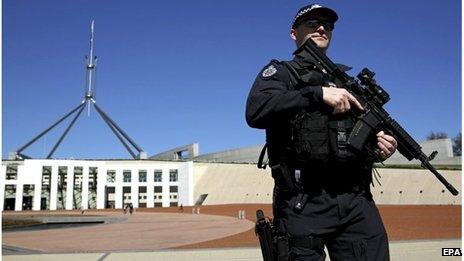
The rule came as Australia tightened parliamentary security because of fears of a terror attack
The rule had come amid growing concern about the threat of terror attacks in Australia and the involvement of Australian jihadists in the Islamic State (IS) militant group fighting in Iraq and Syria.
Australia has joined the US-led coalition fighting IS in Iraq, and domestically, police have conducted anti-terror raids in recent weeks.
But critics said that as everyone entering parliament was subject to security checks there was no reason for people with faces covered to be considered a specific threat.
Opposition Labor frontbencher and former immigration minister Tony Burke welcomed the reversal, saying the decision had been taking without proper security advice and for no good reason.
"In 2014 for two weeks, the official policy of the Australian parliament was to practice segregation and we need to ensure this does not happen again," he said in a statement.
There are about half a million Muslims in Australia, making up just over 2% of the population.

Timeline: Australia's terror threat
21 Jul: Officials say Australian suicide bomber behind Iraq blast
5 Aug: New legislation aimed at preventing people going to fight in the Middle East announced
11 Aug: Image emerges of son of Australian fighter holding severed head of Syrian soldier
27 Aug: New counter-terrorism units set up in airports to stop departing fighters
10 Sept: Brisbane Islamic centre raided; two charged with terrorism offences
12 Sept: Australia raises terror threat level
14 Sept: PM Abbott commits 600 troops to fight against IS
18 Sept: Australia carries out what it calls its biggest counter-terrorism raid
3 Oct: Australia approves strikes against IS
8 Oct: PM Abbott announces ban on foreign "hate preachers"

- Published3 October 2014
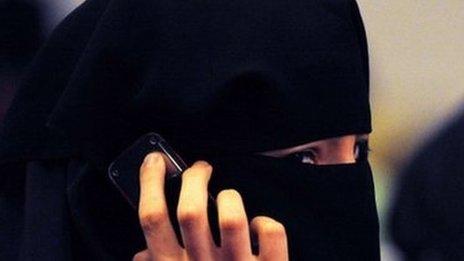
- Published6 August 2014
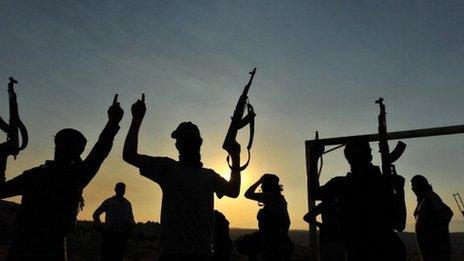
- Published19 October 2014
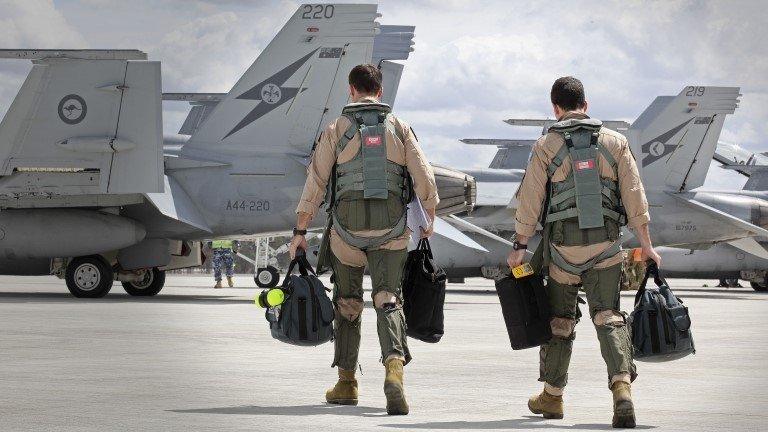
- Published8 October 2014
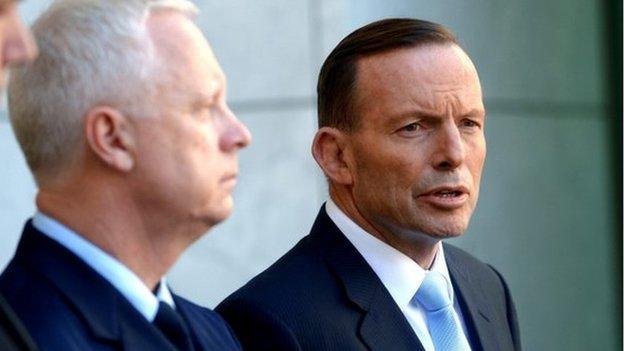
- Published12 March 2015
